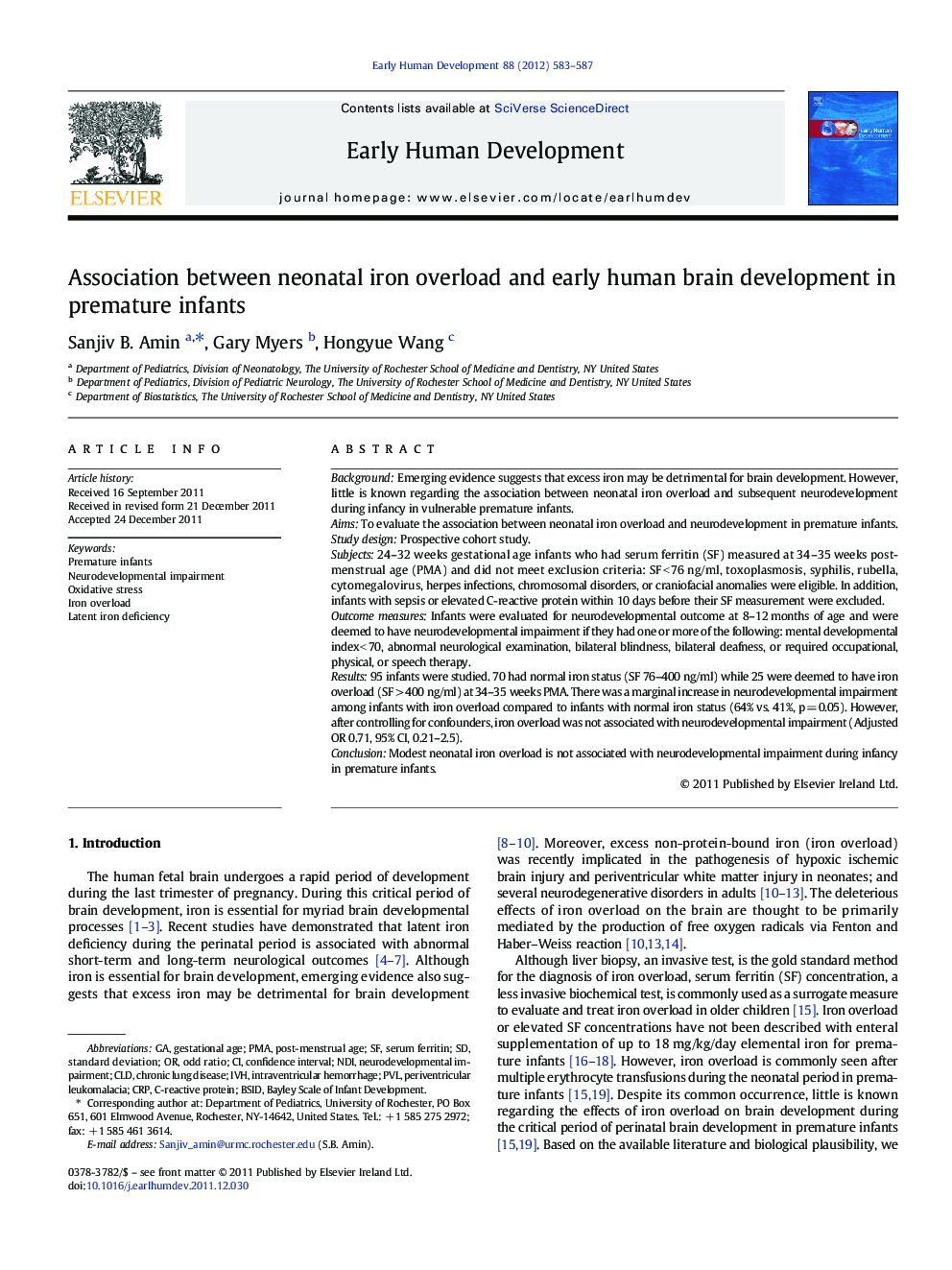| Article ID | Journal | Published Year | Pages | File Type |
|---|---|---|---|---|
| 3916843 | Early Human Development | 2012 | 5 Pages |
BackgroundEmerging evidence suggests that excess iron may be detrimental for brain development. However, little is known regarding the association between neonatal iron overload and subsequent neurodevelopment during infancy in vulnerable premature infants.AimsTo evaluate the association between neonatal iron overload and neurodevelopment in premature infants.Study designProspective cohort study.Subjects24–32 weeks gestational age infants who had serum ferritin (SF) measured at 34–35 weeks post-menstrual age (PMA) and did not meet exclusion criteria: SF < 76 ng/ml, toxoplasmosis, syphilis, rubella, cytomegalovirus, herpes infections, chromosomal disorders, or craniofacial anomalies were eligible. In addition, infants with sepsis or elevated C-reactive protein within 10 days before their SF measurement were excluded.Outcome measuresInfants were evaluated for neurodevelopmental outcome at 8–12 months of age and were deemed to have neurodevelopmental impairment if they had one or more of the following: mental developmental index < 70, abnormal neurological examination, bilateral blindness, bilateral deafness, or required occupational, physical, or speech therapy.Results95 infants were studied. 70 had normal iron status (SF 76–400 ng/ml) while 25 were deemed to have iron overload (SF > 400 ng/ml) at 34–35 weeks PMA. There was a marginal increase in neurodevelopmental impairment among infants with iron overload compared to infants with normal iron status (64% vs. 41%, p = 0.05). However, after controlling for confounders, iron overload was not associated with neurodevelopmental impairment (Adjusted OR 0.71, 95% CI, 0.21–2.5).ConclusionModest neonatal iron overload is not associated with neurodevelopmental impairment during infancy in premature infants.
